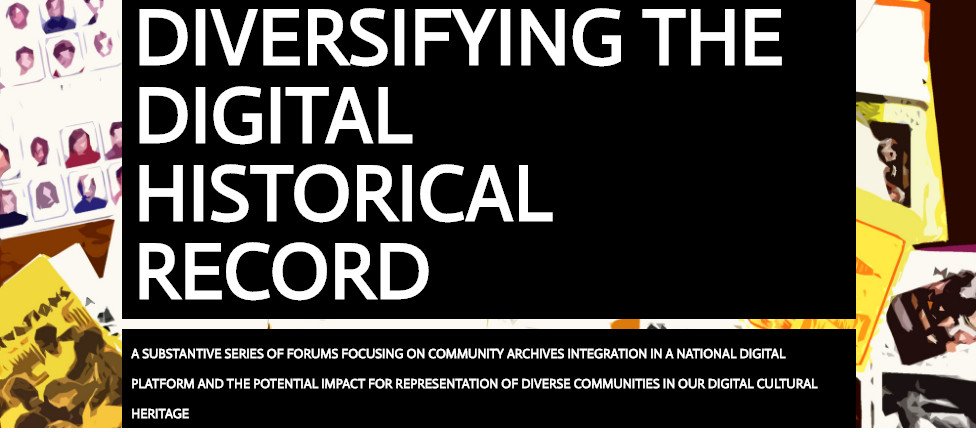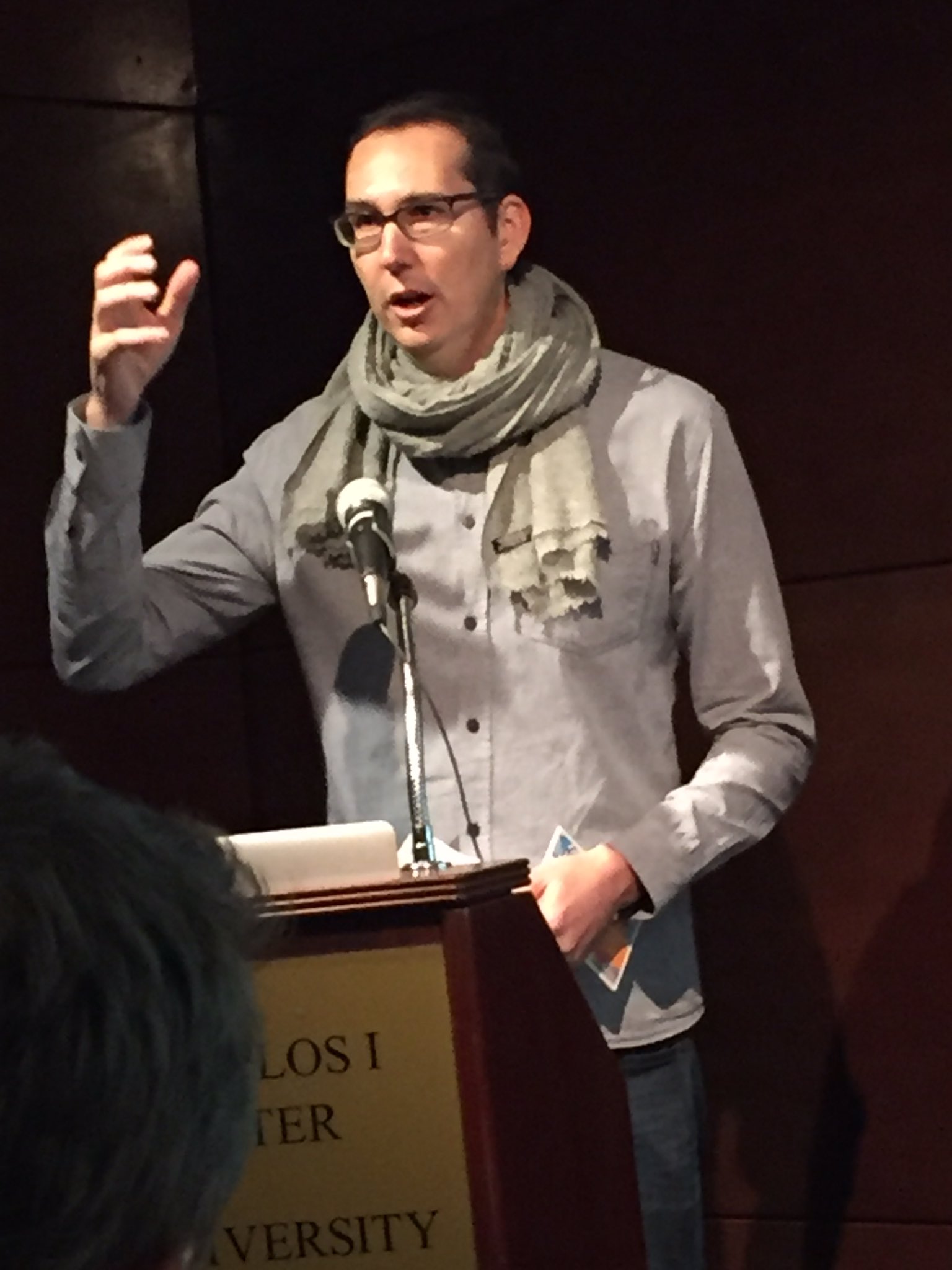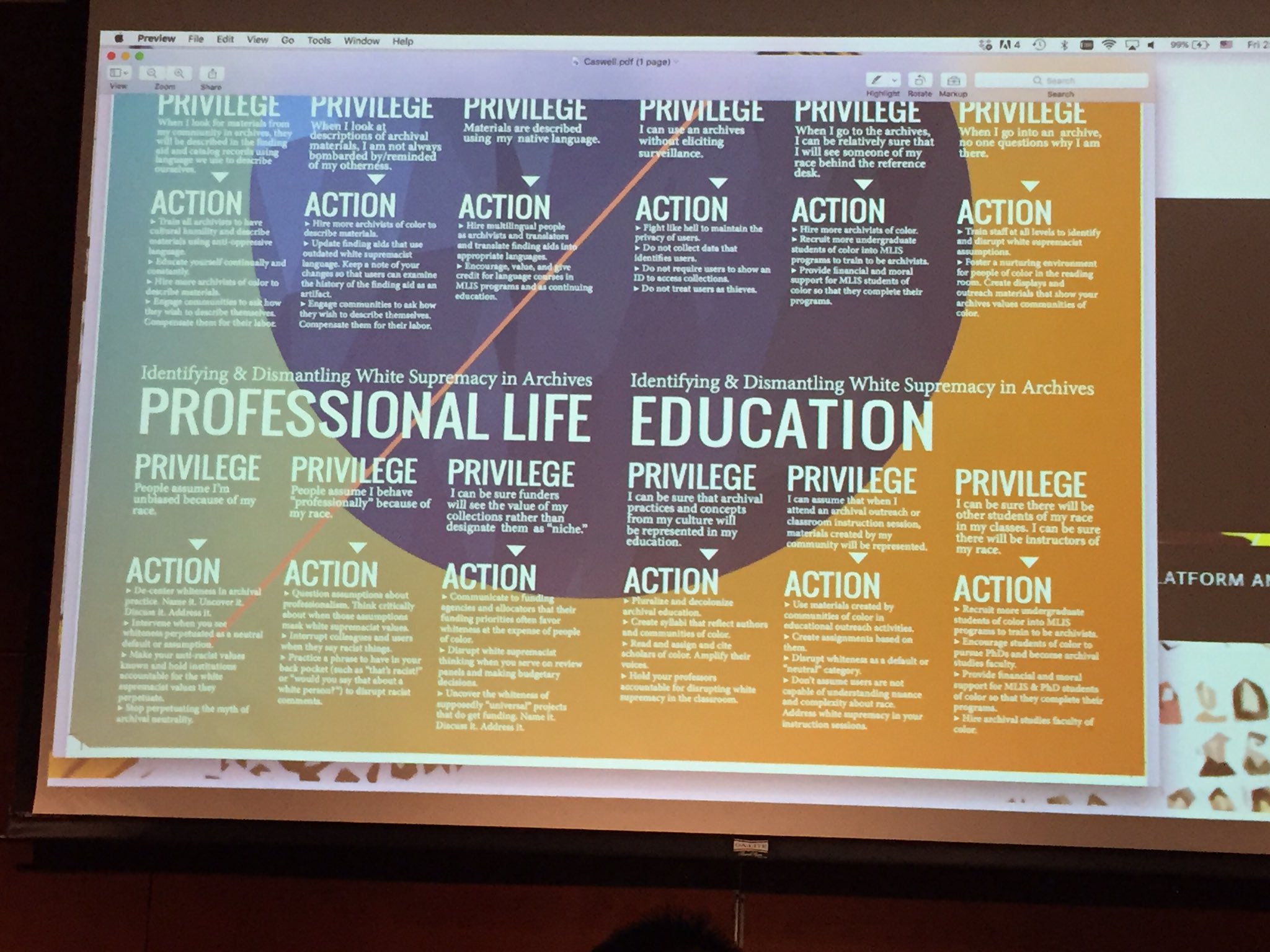
On Friday, October 20, NYU Archives and Public History was proud to host the fourth and final forum of the Diversifying the Digital Historical Record. Organized by the Amistad Research Center at Tulane University, the forum series is intended to integrate community archives into the larger practice of archiving.Building on the themes and conversations of the first three forums, taking place at UCLA-Riverside, New Orleans, LA, and Northwestern University, the theme of last week’s two-day forum was “Integration: Why and How to Address Integration with National Digital Collections Initiatives.” The forum sought to highlight strategies and innovative practices for community archives, which typically function independently and service a local population, to integrate with more national initiatives, while attempting not to interrupt their individual character and autonomy. Audience members were encouraged to engage via dedicated Q&A sessions throughout the forum, as well as through the dedicated Twitter hashtag #DDHR4. The event was also livestreamed, and a full recording is available free here:
After introductory remarks and a welcome by Tamar Dougherty, the forum’s first panel, moderated by Thai Jones, was dedicated to exploring community archives, civil rights, and social justice. Margo Schlanger, Director of the Civil Rights Litigation Clearinghouse, presented her organization’s mission of making legal history accessible, including making all of the litigation in the proceedings from Ferguson, Missouri digitally accessible, for free. Julie A. Herrada, curator of the Joseph A. Labadie collection at the University of Michigan, spoke about broadening the definition of access, highlighting the barriers to access even when collections are made “free” and available to the public via institutions like the National Archives. Many in the audience were surprised to learn from Kimberly Springle that the entire archives of the Washington, D.C. public school system are housed within the Charles Sumner School Museum and Archives, and how the institution strives to bring the D.C. community into the site to engage with both the museum collections and the archival holdings. NYU Archives and Public History graduate Maggie Schreiner closed the panel with a presentation on how the Interference Archive works to collect, exhibit, and preserve the work of community tenant activists in Brooklyn, while also doing the work of organizing and advocacy as a volunteer-only organization.
The event’s second panel highlighted digital initiatives that support community archives. The differences between digital hosting and digital aggregators was discussed by John Voss of HistoryPin and Cecily Marcus, Director of Umbra Search African American History, who also addressed institutional inequity in the digital space.

Jon Voss of HistoryPin discusses the work of content aggregators. (via @HistoryQueer)
Kerri Willette shared a wealth of information about funding sources for digital projects, particularly through regional organization like Metropolitan New York Library Council and various state humanities councils.
One of the day’s liveliest panels was “When Town Meets Gown,” which highlighted collaborative efforts between community archives and academic libraries. Stacie Williams introduced attendees to Case Western Reserves’ attempts to make information and resources relevant to local communities, from pushing to release data on unprocessed rape kits and other public health records to digitization and education around public records. NYU Libraries’ own Aruna Magier presented on the challenges she faced trying to connect New York City’s working-class South Asian activist communities (like DRUM and South Asian Lesbian and Gay Association of NYC) to a archiving process at NYU Libraries, highlighting both the need for community history to be documented and preserved, and the legitimacy of community distrust for large university systems. “Community building needs to be an outcome” Magier insisted, to many nodding heads and affirming snaps from the audience. Dalena Hunter, of UCLA’s Ralph Bunche Center for Black History, brought attention to the way that Los Angeles’ legacy of residential segregation makes it difficult for her community archive on a college campus to reach its intended audience. Maureen Callahan presented on her work at Smith College Special Collections, declaring “Like many of you, I’m here for the radical redistribution of memory capital” to applause from the audience.

Dr. Michelle Caswell’s tools for identifying and dismantling white supremacy in the archive (via @HistoryQueer)
NYU Archives and Public History Director Ellen Noonan moderated the fourth panel on navigating the relationship between social justice and pedagogy in archives training. Dr. Michelle Caswell shared a teaching tool she uses with her students at UCLA to help them identify and dismantle white supremacy in the archives, available here. Dr. Anthony Cocciolo spoke about addressing unconscious bias with his students at the Pratt Institute, and Dr. Nicole Cooke brought to the audience her experiences with microaggressions that form barriers to her students, particularly students of color.

Dr. Anthony Cocciolo presents on how unconscious bias impacts his work in the classroom. (via @AliceLGriff)
The first day concluded with a final panel, moderated by NYU Archives and Public History alum Maggie Schreiner, on digital integration and community archives. Tamara Thompson of StoryCorps spoke to the organization’s success in accessibility to communities, but of the organization’s ongoing challenge to store and organize their thousands of interviews. Lanae Spruce, social media manager of the National Museum of African American History and Culture, spoke of how to craft a digital media strategy for a 21st century institution, and build an audience from scratch who is engaged with the institution. Lindsay Whittwer closed the panel with a presentation on how the Center for Puerto Rican Studies at Hunter College endeavors to blend cultural knowledge and personal agency in its cataloging work.
Attendees discussed Day 1 over “mocktails” at the King Juan Carlos I of Spain Center, then returned the following morning for a day of more interactive workshops and “knowledge cafes.” Participants could choose among sessions devoted to unpacking “authenticity” and notions of how “expertise” is conferred, the politics of memory and choices in memory-keeping, making sense of the wide range of digital tools and platforms, and community archives role in larger power structures, and what a professional archives community can do about it. Attendees tweeted their takeaways and impressions, and steps forward will be discussed. Keep track via the Twitter hashtag #DDHR!
#DDHR4 & #DDHR2 were among the most productive conferences I’ve attended. Thanks to participants & organizers, & to @US_IMLS for funding it!
— Nikki Kang Ferraiolo (@nkferraiolo) October 21, 2017
Some big ideas I’ll keep thinking about #DDHR4 : *archives + accountability**MPLP as a process of erasure**artists/individuals as archives*
— Alice Griffin (@AliceLGriff) October 21, 2017
I’m always excited 2 hear mention of lgbtq archives and/or learning about institutions working w/ lgbtq archives by panelists Thnx #DDHR4
— Historically Queer (@HistoryQueer) October 20, 2017
“Digitization must start and end in better relationships.” – @archivalflip #ddhr4
— Baesoka Tano (@Wribrarian) October 20, 2017